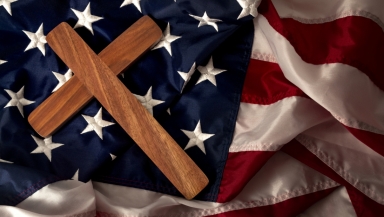
In a new executive action, President Donald Trump has established a new Religious Liberty Commission to bolster protections against “emerging threats” to the US’s longstanding tradition of faith-based freedoms.
The executive order cites the nation's founding principles and the early settlers’ quest for freedom of belief as a guiding inspiration: that individuals should be free to live out their faith without fear of discrimination, censorship, or government interference.
"In recent years, some federal, state, and local policies have threatened America’s unique and beautiful tradition of religious liberty," said Trump.
"These policies attempt to infringe upon longstanding conscience protections, prevent parents from sending their children to religious schools, threaten loss of funding or denial of non-profit tax status for faith-based entities, and single out religious groups and institutions for exclusion from governmental programmes."
The 14-member commission is set to investigate challenges to religious rights, recommend legislative or executive solutions, and help re-establish the role of faith in American civic life.
It brings together “educated representatives” of religious communities, education, state leadership and private industry, and will be supported by three advisory boards made up of faith leaders, lay people, and legal scholars to provide insight from across the religious spectrum.
Key issues on the Commission’s agenda include the defence of first Amendment rights of pastors, students, teachers, and religious institutions, and addressing the government threats to tax-exempt status or public funding for faith-based entities.
It will also examine the protection of parental rights to pursue religious education; conscience rights in health care and employment, and public religious displays and voluntary prayer in schools.
The Commission’s work is set to culminate in a comprehensive report by July 4, 2026, coinciding with the 250th anniversary of American independence, detailing the history, importance, and current state of religious liberty in America. The report will make strategic recommendations to strengthen religious freedom protections at home and abroad.
The executive order signals a proactive federal stance on religious freedom amid growing tensions over the role of religion in public life.
President Trump said that it reaffirms the First Amendment’s promise of religious freedom and the enduring contributions of faith communities throughout American history.
“President Ronald Reagan reminded us that ‘freedom is never more than one generation away from extinction,’” said Trump.
“Americans need to be reacquainted with our nation’s superb experiment in religious freedom in order to preserve it against emerging threats.
"Therefore, the Federal Government will promote citizens’ pride in our foundational history, identify emerging threats to religious liberty, uphold Federal laws that protect all citizens’ full participation in a pluralistic democracy, and protect the free exercise of religion."













